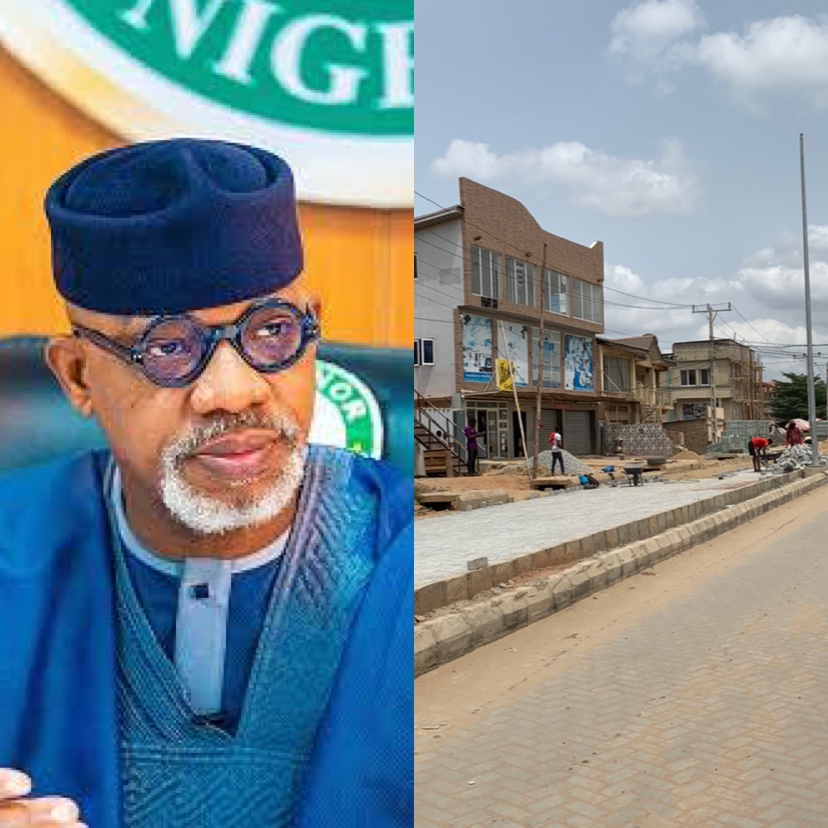By Felicia Nwosu
Dr. Akinwumi Adesina President, African Development Bank Group, has expressed utmost optimism and renewed confidence that the emergence of President, Bola Ahmed Tinubu, GCFR, who recently took over the mantle of stewardship of Nigeria will elicit hope among the citizenry.
Adesina made this statement during the Inauguration Lecture for the New President of Nigeria in Abuja.
“The election of a new President always elicits hope. Nigeria will be looking to you on your first day in office with hope. Hope that you will assure security, peace, and stability. Hope that you will heal and unite a fractious nation. Hope that you will rise above party lines and forge a compelling force to move the nation forward, with inclusiveness, fairness, equity, and justice. Hope that you will drastically improve the economy. Hope that you will spark a new wave of prosperity. And hope must be brought to the present, as hope deferred makes the heart grow weary.”
The AFDB president noted that the starting point must be macroeconomic and fiscal stability, adding that, unless the economy is revived and fiscal challenges addressed boldly, resources to develop will not be there.
“No bird can fly if its wings are tied. Nigeria currently faces huge fiscal deficits, estimated at 6 percent of GDP. This has been due to huge federal and state government expenditures, lower receipts due to dwindling revenues from export of crude oil, vandalism of pipelines and illegal bunkering of crude oil. According to Nigeria’s Debt Management Office, Nigeria now spends 96 percent of its revenue servicing debt, with the debt-to-revenue ratio rising from 83.2 percent in 2021 to 96.3 percent by 2022. Some will argue that the debt to GDP ratio at 34 percent is still low compared to other countries in Africa, which is correct; but no one pays their debt using GDP. Debt is paid using revenue, and Nigeria’s revenues have been declining.”
He opined that the fact that Nigeria earns revenue to service debt will cause a stunting growth to the economy but suggested that the way forward is to kick off with the removal of the inefficient fuel subsidies. He also called for support for private investors.
“Nigeria’s fuel subsidies benefit the rich, not the poor, fueling their and government’s endless fleets of cars at the expense of the poor. Estimates show that the poorest 40 percent of the population consume just 3 percent of petrol. Fuel subsidies are killing the Nigerian economy, costing Nigeria $10 billion alone in 2022. That means Nigeria is borrowing what it does not have to if it simply eliminates the subsidies and uses the resources well
He mentioned that Nigeria spends very little on development and made the urgent need to look at the cost of governance, and emphasized the need to drastically reduce to free up more resources for development.
“Today, Nigeria is ranked among countries with the lowest human development index in the world, with a rank of 167 among 174 countries globally, according to the World Bank 2022 Public Expenditure Review report. To meet Nigeria’s massive infrastructure needs, according to the report, will require $3 trillion by 2050. According to the report, at the current rate, it would take Nigeria 300 years to provide its minimum level of infrastructure needed for development. We must change this. Nigeria must rely more on the private sector for infrastructure development, to reduce fiscal burdens on the government.”
The former minister of Agriculture called on the newly President to ensure that much can be done to raise tax revenue, stating that the tax-to-GDP ratio is still low. This must include improving tax collection, tax administration, moving from tax exemption to tax redemption, ensuring that multinational companies pay appropriate royalties and taxes, and that leakages in tax collection are closed.
“Nigeria’s challenge is not diversification. Nigeria’s challenge is revenue concentration. This is because the oil sector accounts for 75.4 percent of export revenue and 50 percent of all government revenue. The solution, therefore, is to unlock the bottlenecks that are hampering 85 percent of the economy. These include low productivity, very poor infrastructure and logistics, epileptic power supply, and inadequate access to finance for small and medium-size enterprises. Nigeria must also shift away from import substitution approach to export-focused industrialization. Nations do not thrive through import substitution; they thrive from export-bound industrialization.”
The financial expert said the government must brace up to decisively fix the issue of power, once and for all to fast-track growth at all levels.
“There is no justification for Nigeria not having enough power. The abnormal has become normal. Nigeria’s private sector is hampered by the high cost of power. Providing electricity will make Nigerian industries more competitive. There is an urgent need to unleash the potential of the youth. Today, over 75 percent of the population in Nigeria is under the age of 35. This presents a demographic advantage. But it must be turned into an economic advantage. Nigeria must create youth-based wealth. We must move away from the so-called “youth empowerment programs”. Youths do not need handouts. They need investments”, the financial expert advised






Comment
No comments found.